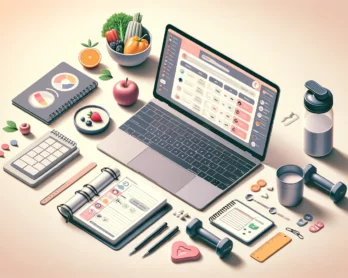Green Living Tips for the Heart of the Home
Natural living can be overwhelming for someone who is just getting started. Therefore, it’s important to choose one area to focus on rather than trying to change everything at once, and the kitchen is a great place to start.
Those who are interested in improving their family’s health and reducing their impact on the Earth should keep the following guidelines in mind:
Read ingredient lists while shopping–not the front of the box.
More and more items have changed their packaging to include words like “whole wheat” and “no transfats” and much too often these claims are misleading. It is important to flip the box or package over and read the ingredient list. A good rule of thumb is that there should be a limited number of ingredients (rather than a long list) and that the ingredients should be fairly easy to pronounce. Three big ones to watch out for are high fructose corn syrup, partially hydrogenated oils (transfats), and artificial colors and flavors.
Limit intake of processed foods.
Purchase food that is as close to its natural state as possible. Stay away from convenience foods because, while they may seem to make life easier, they are filled with sodium, artificial colors/flavors, and preservatives. Always remember that fresh is best. With the current focus on eating well, information about cooking from scratch is readily available online and in bookstores.
Buy organic when possible.
If money is tight, buy organic meat, dairy, and eggs. Also keep in mind that conventional produce varies in regard to the level of contamination, so check the list of top ten fruits and veggies to buy organic to find out which items typically contain the most pesticides.
Eliminate soft drinks and artificial kids’ drinks from the family’s diet.
These are not beneficial in any way and are typically filled with artificial colors and high fructose corn syrup. Drink water, organic milk, and 100% fruit juice instead.
Carbon Water Filter for Your Kitchen
Buy a high quality water filter that has been independently certified.
The bottled water industry is poorly regulated. Therefore, one can’t depend on the labels for the source or quality of the water. The industry also has a negative impact on the environment for obvious reasons. Water filters, however, are well-regulated and often independently tested for effectiveness. Look for a kitchen filter or whole house system that removes chlorine and other impurities from your family’s drinking water.
Use nontoxic cleansers instead of conventional cleaning products.
Natural cleansers are available in most stores these days but can get pricey, so you may want to use baking soda as a scouring powder and diluted vinegar in a spray bottle if being frugal is a priority.
Use eco-friendly, reusable items in the kitchen as often as possible.
Consider using the Klean Kanteen to take water with you rather than plastic bottles. For sandwiches, try the Wrap-n-Mat, a convenient wrap for sandwiches that eliminates the need for plastic bags. Another option is the aluminum box made by Sigg which can be used for sandwiches or other snacks. Cloth napkins are easy to find and eco-friendly. When opting for disposable napkins or towels, be sure to buy from a company that uses recycled materials. Finally, stop bringing home groceries in plastic or paper bags and invest in some reusable shopping bags instead.
| Image sources |
|---|











